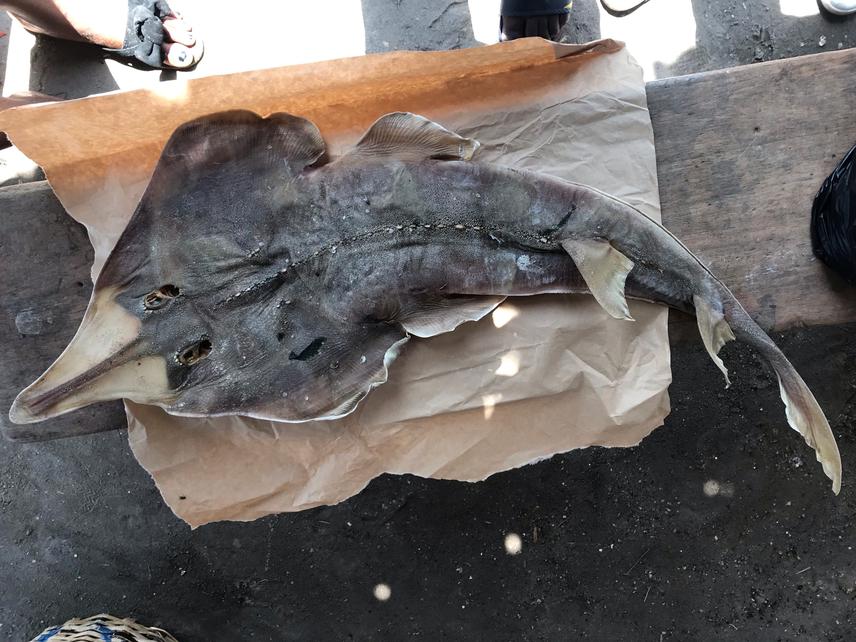Bernard Eshun
The purpose of the project is to generate baseline data that will contribute to the development of a species survival blueprint for the Blackchin guitarfish in Ghana. Blackchin Guitarfish is classified Critically Endangered by the IUCN due to severely depleted populations in its range. The species has undergone >90% population reduction over the last three decades.
The project will raise conservation awareness and build the capacity of local people to contribute to the species long-term conservation. The project will engage stakeholders within the fisheries sector to develop an active policy plan to abate the exploitation of the species.
To achieve these goals, the project will estimate current populations, assess socioeconomic impacts of the species’ trade, and raise awareness on the conservation status of the species.

The Blackchin guitarfish (Glaucostegus cemiculus) is the only West African occurring species of the six critically endangered species of the family Glaucostegidae (Kyne et al., 2019). The species’ geographical range falls within a high fishing pressure zone of the Mediterranean and West African coastal regions (Jabado, 2019) with Ghana as one of such hotspots (Kyne and Jabado, 2019). The species has undergone a >90% population reduction over the last three generations (Kyne and Jabado, 2019). Giant guitarfishes have high-quality meat and the best quality fins for human consumption and are among the highest valued in the international shark fin trade. These qualities make them targets of exploitation across the region by net and trawl fisheries leading to overfishing (Moore 2017, Jabado 2018). The species is listed as CITES Appendix II; however, international trade is still increasing (Jabado, 2019).
Worst, little information exist on the species population estimates, harvest and trade patterns, and conservation status. This paucity of data makes it difficult to design an appropriate conservation intervention for the species. Another significant conservation challenge is the lack of awareness of the plight and status of the species within the local communities. Therefore, the need to implement priority IUCN recommended interventions to save the species from extinction cannot be overstated.
The project will assess and identify population hotspots, evaluate socioeconomic impacts of the species’ trade, and raise awareness on the species conservation status. The project will also develop a Blackchin Guitarfish Conservation Action Plan (BGCAP) through stakeholder engagements.
The project sites include coastal communities within the catchments of the Songor and Keta Ramsar sites in Ghana. Project activities will include market and landing site surveys, stakeholder consultations and workshops, community conservation education, volunteers’ training, and the establishment of action groups to monitor and record all activities in and around the species’ habitats.
The project’s outputs comprise increasing stakeholder participation towards the species conservation: delineating population conservation: developing an action plan to restrict exploitation of the species: and provide baseline data to supplement information required for the development of the first marine protected area in Ghana.